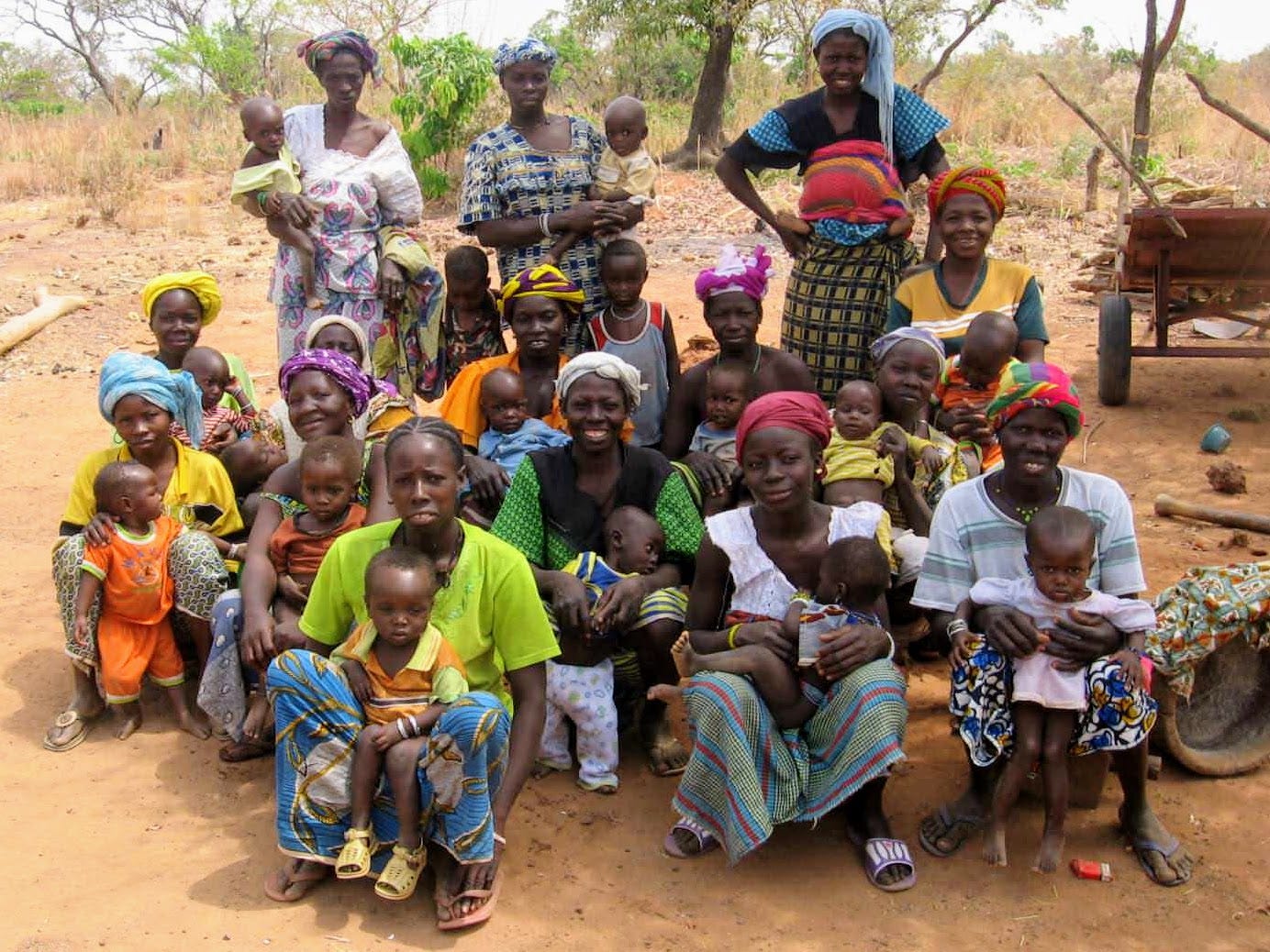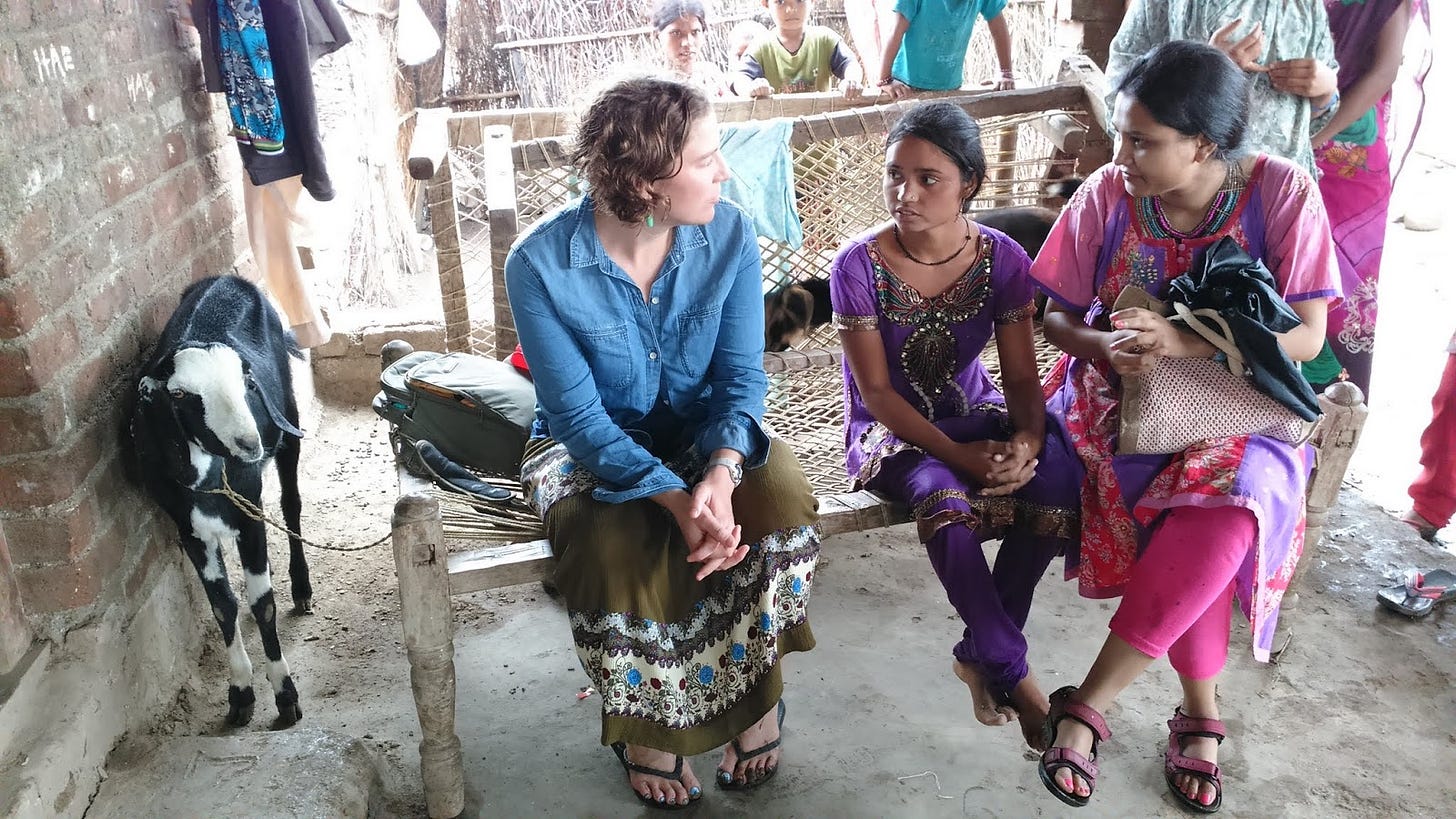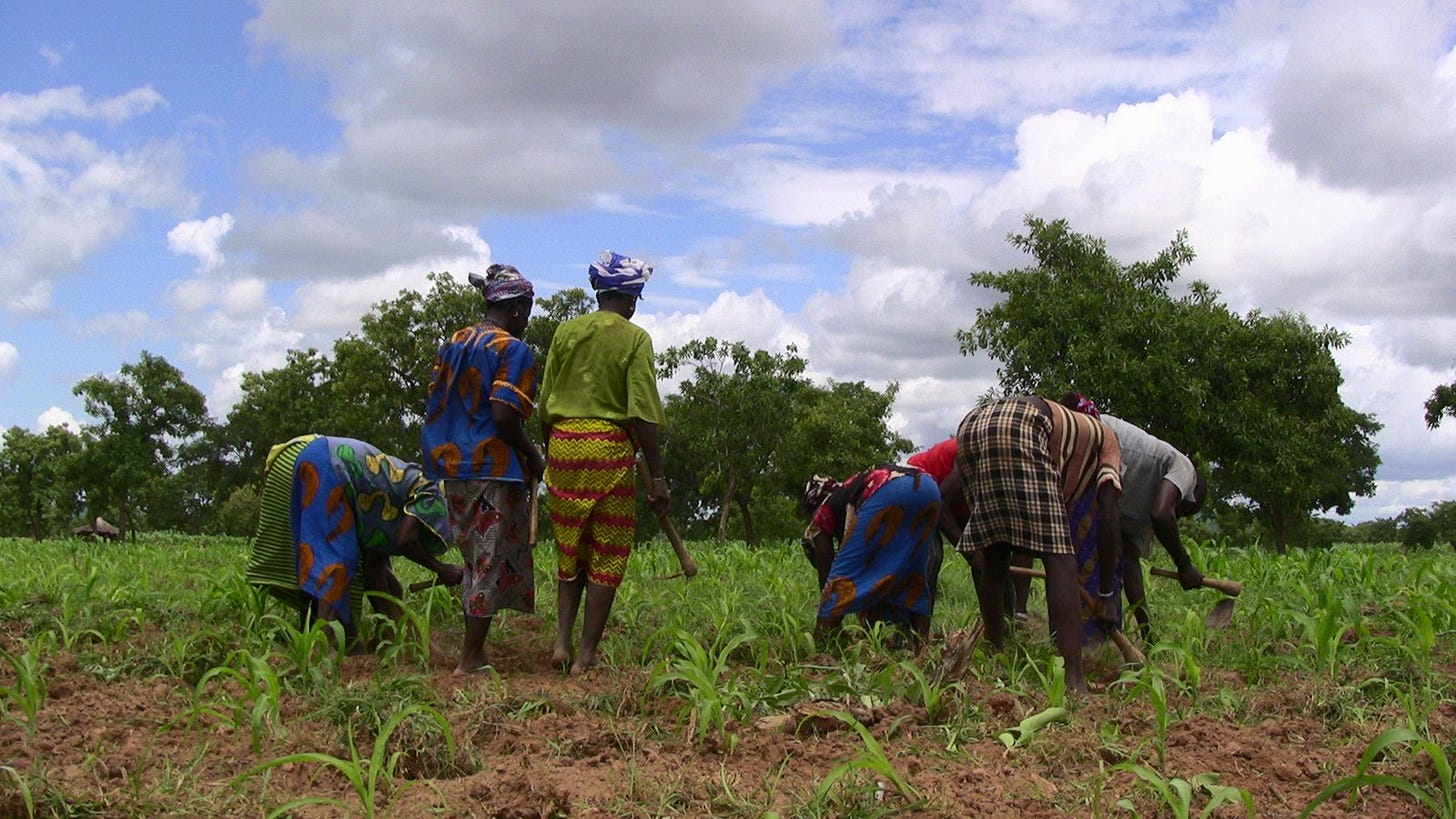I have wanted to “save the world” since I first learned about the widespread destruction of our tropical rainforests during a high school biology class. This humble goal took me to an undergraduate program studying environmental engineering at Cornell University. I learned some valuable things there, including: 1) I could do hard math, but so could others more easily, and I enjoyed managing group projects even more than solving equations, 2) the world is big and I wanted to see more of it, 3) there are challenges beyond rainforest destruction, and I had a lot to learn if I wanted to contribute.
The idea of moving to a city in the US where I didn’t know anyone, for an entry-level engineer job helping companies avoid environmental fines, sounded both scary, and uninspiring. So I decided instead to let the Peace Corps decide where in the world I should go live, by myself, for a two-year service stint. Makes sense, right?
I ended up in a village of about 600 people in southern Mali, in West Africa. Every family in the village farmed. Making a rough estimate, more than half were not able to grow or buy enough food to sufficiently provide for all family members for a full year, and none of the families were able to provide a nutritious diet for themselves year-round. This, despite the hours and hours of hard labor planting, weeding and harvesting, long walks to the fields and prayers for good rains.

After gaining this large dose of awareness about how unequally distributed our world’s resources and opportunities truly are, I added “support farmers” and “work towards food security” to my general “save the world and the environment” mission. The experience of living amongst incredibly hard-working and generous families who do not have enough to eat, or a functioning health care, education or government system, stuck with me and will never leave.
After my time in the Peace Corps, I worked through a master’s program in “science, society and development,” and then a number of roles with non-profits, universities and the United Nations, all focused on agriculture, food security and support for farmers. My goals rarely wavered, although I certainly had times of frustration and overwhelm, especially when our work seemed so small or the barriers seemed to pile up.
It’s hard to say exactly why or how, but I think that my belief in the importance of bringing ecology into agriculture grew slowly over this time. It most likely started all the way back in Mali, while I walked the rows of maize fields with the other women, dropping seeds they had saved into dry soil, occasionally with a pinch of purchased fertilizer, and noting how much better adapted their local millet varieties were for that climate. It definitely grew through work I did with farmers, through Episcopal Relief & Development, in The Philippines, India, Burundi, Ghana and Nicaragua. In these programs, they were experimenting with adding more compost or ground cover, with diversifying plots with fruit and nut trees, with raising pigs using naturally fermented feeds, with fighting insect pests with homemade tobacco and neem pesticides. The farmers we worked with usually understood the relationship of their crops and animals to the surrounding environment, even if they were not using that knowledge in their food production. Many of their parents or grandparents had stopped incorporating that knowledge when imported cash crops, inputs and “modern” techniques were successfully promoted, and started to dominate the markets.

The idea really hit home when I took a job working with a social enterprise in East Africa, first in Uganda and then in Kenya. Living there for a few years, I had the opportunity to spend time with countless farming families. And many of them told me variations on the same story — the seasons and the rains are becoming more and more unpredictable and problematic. While they were just barely making it before — now, it was even harder. The inputs and training we were offering then didn’t feel sufficient in the face of such a big challenge. And we didn’t even fully understand what the new challenge was.
I sought out the opportunity to dive into research for a few years and found the Agroecology Lab at the University of Maine, led by Dr. Rachel Schattman. The basic principles of agroecology seemed to bring together many of these loose ties that I had been gathering up over the years. The principles that spoke to me first, and most clearly, are those related to the practice of agroecology — producing food in a way that utilizes ecological principles, and supporting and empowering land managers.
That is what I had been working on! (in collaboration with many others). I personally believe there is sometimes a place for externally engineered inputs and seeds, used strategically and sparingly, because I think that farmers deserve to have the full breadth of options to do the very hard job of growing our food. But, more importantly, my experience tells me that for our food production to be successful over-time, for our natural resources to be protected and restored, and for our systems to be resilient to new extreme weather and shifting ecoregions, farming needs to work in synergy with ecosystems.
I also work from an ethos of co-creation. This is an approach I’ve held long before learning about agroecology. It probably comes first from my father, who taught me and my brothers to listen to and respect the ideas of others, ask questions, be a learner. And it certainly was cemented early on during my Peace Corps experience when I realized most of my western and scientific knowledge was useless in that small village if it wasn’t paired with careful listening, conversation and re-learning.

When I attended the Agriculture Food and Human Values Society conference last June, Leah Penniman of Soul Fire Farm, a celebrity to many in the group but someone new to me, gave a keynote address. She spoke about four strategies for transformation — “resist, build, heal and reform” — as four wings of a butterfly, noting that all four are needed for flight. She also made the point that each of us will engage in the one “wing” that most calls to us, and that is ok. It was a message I needed to hear at that moment. I had listened to many talks that week from those more involved in the movement principles of agroecology, what Leah was referring to as “resist” and “reform.” I had been feeling stressed that I was currently solely focused on the science of agroecology, and was planning to get back into practice, and asking how I could find time to do it all?
As I write this, at a time of challenging division here in the United States, I would say that is the wrong question. Instead I need to do the best that I can, and ask “how can I collaborate with others so that together we can empower our food producers, align production with ecosystems, and rebalance power?”
Which of the butterfly wings do you most align with right now?
What questions do you ask yourself about your role in the agroecology space, or how you can collaborate?






thanks for sharing your experience. reflection on one's journey is so important and it's good to know how your heart leads you! what's missing for me here is the analysis of the imperialism, colonialism, and global systems at play that put these communities in this position in the first place. it's not just that this is how their land is and that the people across the globe suffer from this set of circumstances - this is a globalized and system based theft - of knowledge, culture, arable land, and resources. climate change is the fault of capitalism, wealthy people, and consumerism which then makes life unbearable for many others across the earth. this blog - while lovely in its documenting of your own journey towards agroecology - is missing these pillars of how our world is set up and the analysis behind why these 'programs' and 'initiatives' exist in the first place. "Many of their parents or grandparents had stopped incorporating that knowledge when imported cash crops, inputs and “modern” techniques were successfully promoted, and started to dominate the markets." - why? how? what is the history of these areas and how do they relate to the marketing shared (and who is it that is marketing!)? 'successful promotion' sounds like capitalism came thru and took over - leaving little choice for farmers. did your schools educate you and your classmates on imperialism? on colonialism? on religion's 'mission' to 'civilize' others? and it's relationship to the earth, farming, and/or sovereignty? how does this impact your lens? how do you relate to marginalized communities without accountability of the systems that the US perpetuates, funds, and uses through large violent 'business'? how does agroecology resist and dismantle these systems? thanks for considering.